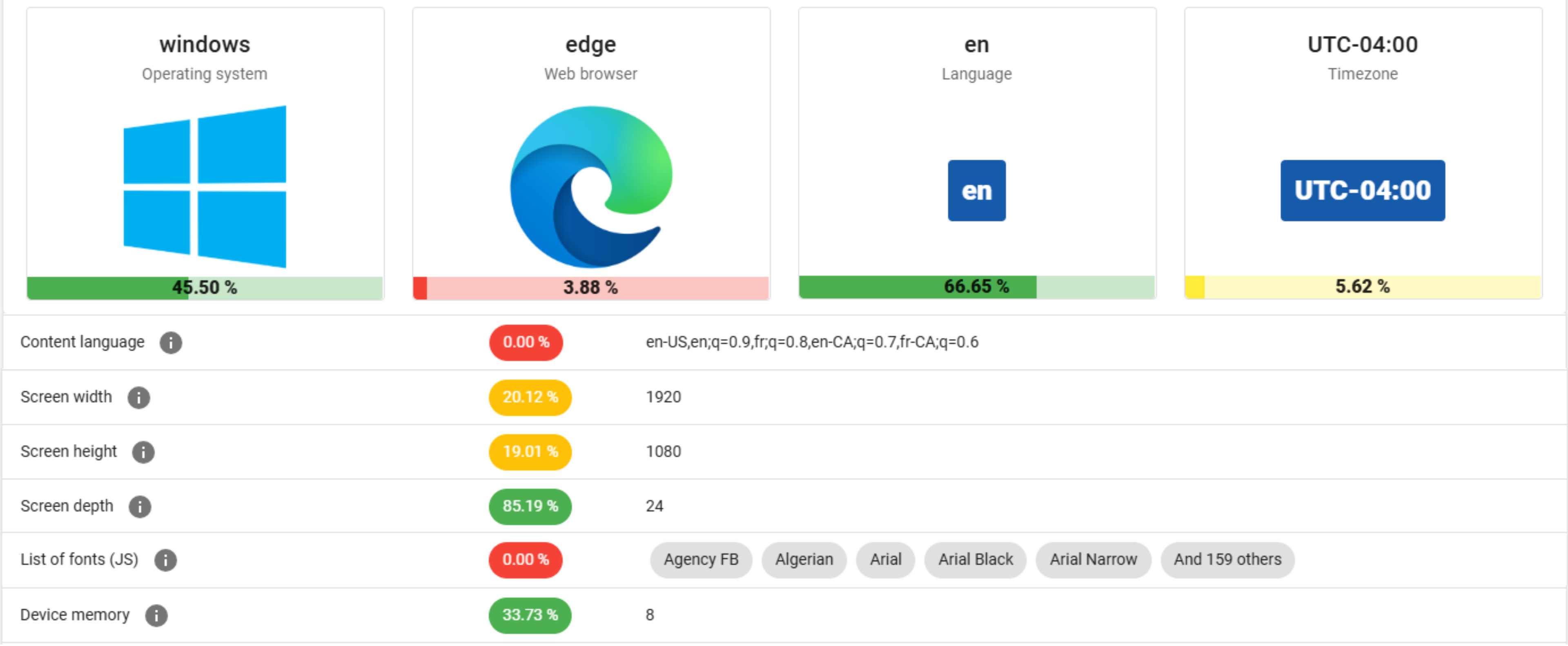Amidst the glossy marketing for VPN services, it can be tempting to believe that the moment you flick on the VPN connection you can browse the internet with full privacy. Unfortunately this is quite far from the truth, as interacting with internet services like websites leaves a significant fingerprint. In a study by [RTINGS.com] this browser fingerprinting was investigated in detail, showing just how easy it is to uniquely identify a visitor across the 83 laptops used in the study.
As summarized in the related video (also embedded below), the start of the study involved the Am I Unique? website which provides you with an overview of your browser fingerprint. With over 4.5 million fingerprints in their database as of writing, even using Edge on Windows 10 marks you as unique, which is telling.



Librewolf + uBlock Origin + Privacy Badger + containerise
For the comedy extra point, a user agent switcher can actively lie about your browser & OS.
It should be noted that user agent switchers may break some website functionalities. I guess this is true for nearly all privacy protections, though this is the only one that gave me any noticeable trouble.
uBlock Origin and Privacy Badger shouldn’t be paired together. Containers do nothing to prevent your fingerprint from being collected. LibreWolf itself is easily fingerprintable. And the user agent isn’t the only telltale sign of your browser and OS, changing it will just make you more unique.
Just use Mullvad Browser with the default settings.
Using a browser like Librewolf is, itself a unique identifier bc not enough people are using it.
EFF has a tool that lets you check your “uniqueness” and bc I used a lesser known browser, it was easier to track me.
Not that I mean you shouldn’t use it. I just wanted to clarify that it doesn’t make you safe from ads. :(
https://coveryourtracks.eff.org/ is the EFF tool.
My results say that I have strong protections against tracking, and that my browser is unique. It’s as good as I can get.
The agent switcher also tells the world my Librewolf on Linux is Chrome on Windows.
Isn’t it a bad thing to be unique in this context? If my browser is 1 in a million, that means that a tracker can pick me out of a lineup of a million users, no? That’s why a captcha can verify you as human simply by checking a box, because it can identify your unique browser as associated with human activity.
If I’m not mistaken, we want the opposite. We want our browsers to be as generic as possible if we don’t want to be tracked.
I would think unique means you appear as a never before seen individual and not one they can identify from their fingerprint history. If you fingerprint twice and both are unique, you are secure.
Thanks for linking it! I should have done that. And if LibreWolf is showing as Chrome on Windows, then you’re good!
Thanks for linking it! I should have done that. And if LibreWolf is showing as Chrome on Windows, then you’re good!
This breaks most websites you’ll visit. Just to keep in mind to others considering locking their browser down.